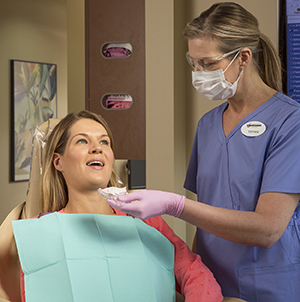Jaw (Orthognathic) Surgery: Presurgery Orthodontics
You have been scheduled for orthognathic surgery. This is treatment that reshapes the jaw to improve its form and function. Before surgery, most people need to have orthodontic treatment to move and straighten the teeth. This lets the surgeon place the jaws in the correct position. Dental work is also needed throughout the process. This phase before surgery is often the longest part of treatment.

Preparing your mouth for braces
To support the teeth, the gums and underlying bone need to be healthy. This is why you’ll need to keep up with routine dental care throughout the treatment process. All cavities should be filled before surgery. If you have gum (periodontal) disease, you’ll see a periodontist or general dentist for treatment. You may have other dental problems that need correction. For example, if you have wisdom teeth, they will most likely need to be removed before you get braces. When your teeth and gums are ready, you’ll go on to the next step.
Getting your braces
Braces help make sure that the placement of your teeth will work well with the position of your jaws after surgery. The braces use gentle pressure to slowly shift teeth into their new positions. Modern braces use very mild pressure to reduce the discomfort. Also, modern braces are less noticeable than old-fashioned braces. While you have braces, you’ll need to not eat hard or sticky foods. You’ll also need to be extra careful about brushing and flossing your teeth. Your orthodontist will tell you more about taking care of your braces and your teeth.
Online Medical Reviewer:
Jessica Gotwals RN BSN MPH
Online Medical Reviewer:
Michael Kapner MD
Online Medical Reviewer:
Tennille Dozier RN BSN RDMS
Date Last Reviewed:
12/1/2022
© 2000-2024 The StayWell Company, LLC. All rights reserved. This information is not intended as a substitute for professional medical care. Always follow your healthcare professional's instructions.